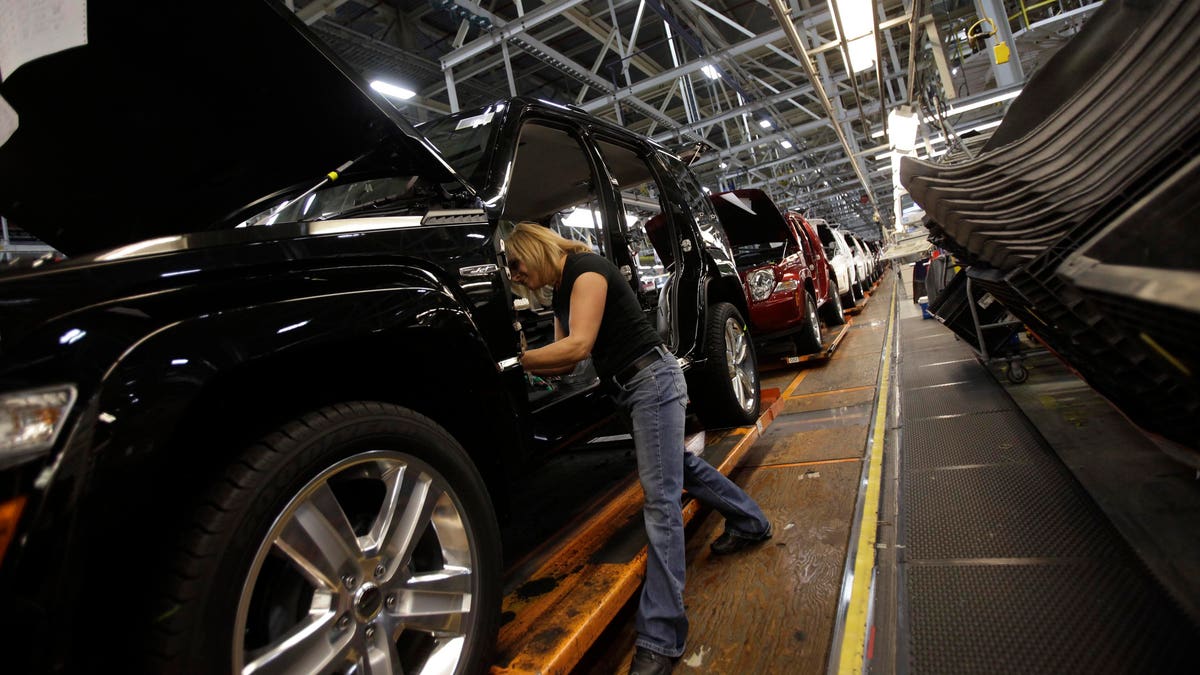
TOLEDO, OH - NOVEMBER 16: Union worker Pam Bialecki installs carpet into a Jeep Liberty at the Toledo Assembly Complex on November 16, 2011 in Toledo, Ohio. Chrysler Group LLC says it will add 1,100 jobs at the Toledo, Ohio assembly complex along with a new body shop and quality center as part of an overall $1.7 billion investment to build a new generation of Jeep sport utility vehicles. (Photo by J.D. Pooley/Getty Images) (2011 Getty Images)
Thanks to nearshoring, many are calling Mexico the new China. But maybe calling Mexico the new Detroit would be more accurate.
Foreign manufacturers are continuing to invest at a quickening rate in Mexico. Some are expanding their facilities, while others are coming over for the first time. But the international automotive sector is leading the foreign investment pack.
All this new investment and the job growth that comes with it give Mexican politicos the chance to claim credit for the boomlet. But the political and economic climate outside of Mexico in countries like the United States has played a major role in the country’s current success as well.
The president’s domestic agenda, comprised of pursuing a hike in the minimum wage, a job-killing health care plan and throwing up stop signs to job creating projects like the XL pipeline, will likely see more companies eyeing operations south of our border.
Vehicle production for export in Mexico has played a leading role in the country’s growth. As Mexico, Canada and the United States celebrate 20 years of the North American Free Trade Agreement, Mexico’s quest at the outset of the agreement to integrate its economy more fully with the U.S. and Canada has paved the way for the positive growth we have seen over the past few years.
According to the Federal Reserve Bank, 83 percent of light vehicles made in Mexico were exported last year, the highest percentage in the world and especially impressive for a country that does not have a domestic carmaker. Mexico produces nearly 2.3 million vehicle units, fourth-most in the world behind Germany, Japan and South Korea.
- Lost Snake Species ‘Re-Discovered’ After 80 Years On Remote Island Off Mexico
- As Lime Prices Soar, Restaurants Ponder What To Do About Cinco De Mayo
- Mexico City Campaign To Encourage Breast Feeding Comes Under Fire
- Border Patrol Unveils Rescue Beacons To Allow Migrants In Distress To Call For Help
- Shocking Many Americans, Most Mexicans Have No Clue Who Cesar Chavez Is
Mexico is an attractive low labor cost location, an important designation as costs rise in Asia and the regulatory environment in the U.S. becomes less accommodating to growth. The country offers a favorable tax structure through bilateral and multilateral trade agreements, and various pro-employer, pro-business elements of its economic environment.
For example, Ford produces its Fusion model for the entire North American market from Mexico. From Ford’s perspective, Mexico is a location integral to its entire global operations. Manufacturers and automakers are not only driven by economic conditions in Mexico, but also by the geographic location for shipping to points north and south, and not just for finished products but for supply chain efficiency as well. In fact, Mexico has been so successful in exporting that some less developed countries have installed restrictive quotas on Mexican-origin products.
But Mexico’s political class, especially those who tout their support for policies that lead to conditions favorable to job growth and a higher quality of life (so, everyone), should look at improving the infrastructure and security leading to the country’s land ports. Improvements in these critical trade corridors would lead to a reduction in crime and enhance the country’s overall international trade profile. Mexico’s customs agency should remain committed to maintaining a leading role in in trade technology and processes.
Mexico is poised for continued growth not just because of its geographic proximity to the U.S. market, but also because of President Barack Obama. The president’s domestic agenda, comprised of pursuing a hike in the minimum wage, a job-killing health care plan and throwing up stop signs to job creating projects like the XL pipeline, will likely see more companies eyeing operations south of our border.
Mexico is expanding, but whether its leadership knows it or not, the U.S. is contributing to that success in more ways than one.
